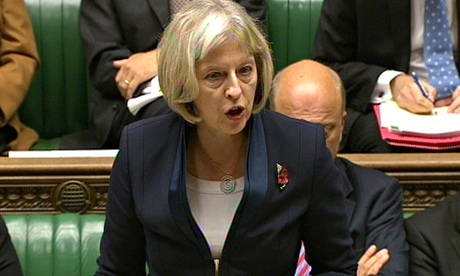The Child Abuse Inquiry Needs to Start Again with Transparency and Trust
By Jonathan West
Trust. That’s the issue. Child abuse survivors, particularly those abused in institutional settings, are often highly mistrustful and obsessively motivated. It’s hard for those not abused in childhood to understand how devastating it is to be so thoroughly betrayed by the very adults and authorities on whom you depend for your care, and how profoundly that affects your ability to trust anybody in later life. The home secretary Theresa May’s conduct in setting up the inquiry falls far short of building the trust necessary to gain the confidence of these extremely and justifiably mistrustful people. It is clear from her statement in parliament on Monday that she isn’t close to understanding how much transparency is really needed. Let’s start with the powers of the inquiry. May insists that the right course is a panel inquiry, which “if the chair requests” can later be converted into a statutory inquiry. And yet she claims to be absolutely determined to get to the truth on this issue. The two statements don’t go together. Her “intention and expectation” that all government bodies will voluntarily cooperate with a panel inquiry will be met with a hollow laugh by the many people who were abused or otherwise failed by those same government bodies. Think of the trouble Alexis Jay had getting documents out of Rotherham council. As for non-state institutions, they have no obligation to do anything at all. The Salesian order (which ran the school at which the panel member Graham Wilmer was abused) last month issued a statement. “The Salesians will of course cooperate fully with the forthcoming government inquiry if they are required to do so” (my emphasis). The clear implication is that if they aren’t required to, they won’t. Religious organisations, independent schools and a whole plethora of non-state organisations have been involved in abuse or cover-up. They aren’t voluntarily going to cooperate with the inquiry, just as they didn’t voluntarily disclose the abuse to the authorities at the time. Their insurers won’t want anything disclosed that increases their liability to claims. We know this already; we don’t need to waste several months while the chair learns this lesson anew. An inquiry that is judge-led and statutory from the start, with powers to compel the production of documents, to require the attendance of witnesses and to take testimony under oath, is an absolute minimum if it is to gain the confidence of survivors. This was forcefully and unanimously expressed by survivors’ organisations at last Friday’s meeting with members of the inquiry panel. Without it, almost nothing else matters. Many survivors just won’t testify to a body they will perceive as being engaged in a whitewash. Let’s go on to some other shortcomings. May has offered more transparency in the appointment of the new chair, but has expressed confidence in the other panel members. However, they were all appointed under the same flawed, non-transparent process that led to the Butler-Sloss and Fiona Woolf fiascos. This is made worse by the fact that she regards the chair as first among equals within a team effort. If the inquiry is a team effort, then the whole team must be selected by the same transparent process. It won’t be trusted by the victims otherwise. May claimed that the redrafting of Woolf’s disclosure letter was done with the aim of improving transparency. That won’t wash even among ordinary members of the public when the effect of the redrafts was so obviously the opposite. Among abuse victims it reeks of a conspiracy to impose a pliant chair on the inquiry to prevent the truth being uncovered. Butler-Sloss had to go when it was discovered that she had suppressed the name of an abusive bishop from an inquiry report. Quite apart from her family connections, this made her unsuitable. Woolf was unsuitable on three grounds. First, she knew nothing of the subject. Second, for a statutory inquiry (even a converted one) you really need a judge to wield its powers, for instance to hold uncooperative witnesses in contempt of court. Finally, she had had dinner too many times with the Brittans. Even on the basis of her final letter, had Woolf been a potential juror for a trial in which Brittan was a witness, that connection would have seen her instantly excused. The inquiry should be no less impartial. For May to appoint Woolf in the first place and then to persist with her once the connection was known was a huge error of judgment. The overwhelming impression is of the minimum possible degree of transparency being grudgingly conceded. Every time abuse survivors have to scream and shout for an acceptable degree of transparency, the credibility of the whole process is lessened. What would happen if they held an inquiry and no one came? We’re dangerously close to finding out.
|
.
Any original material on these pages is copyright © BishopAccountability.org 2004. Reproduce freely with attribution.
